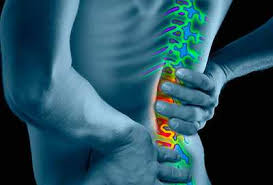A good number have entirely left the nursing profession to do contract jobs, open patent chemist shops, etc, largely because of occupational hazard associated with the practice of nursing. And the commonest hazards are from work-related low back pain!
If you must choose among these occupations; construction workers, delivery goods drivers, wheel barrow pushers, nurses, farm workers, which of these occupations suffer highest incidence of back pain? You might think that construction workers or delivery goods drivers might be the riskiest occupations for back pain, because the work involves a lot of bending and lifting but you will be wrong. Many people are surprised to learn that nursing is the riskiest occupation for back injury. From statistics, nursing has the second highest incidence of all types of non-fatal work related injuries in the world.
A research has severally revealed that the prevalence of back pain was relatively high among nurses than other professions. There are two main risk factors for back pain injury among nurses; namely lifting and transferring patients and bed-making. During a typical shift in a standard hospital, on average, a hospital staff nurse will lift about 10-15 patients into bed, and transfer 4-6 patients from bed to a chair. Most patients typically weigh in excess of 100, which put this load well above the weight that would be considered ‘safe’ for industrial workers for this frequency of lifting. Just as with many hospitality workers, bed-making also increase the risk of back injury because of frequent bending involved in putting sheets into a bed. In view of the increasing nursing shortage, it is also essential to develop effective rehabilitation and limited-duty opportunities for nurses with back injuries.
The rehabilitation should preferably come in form of physiotherapy. It is pertinent for the directors of nursing services in the 36 states & Abuja to liaise with the physiotherapy hierarchy in their respective states for regular workshops and training on ergonomics and teaching proper body mechanics in patient handling.
If you have an aching back, you are not alone. According to surveys by Back Pain Care Foundation, an estimated 52 per cent of nurses complain of chronic back pain, 20 per cent requesting assignment transfers and up to 12 per cent leaving the profession as a result of back pain.
Because back pain affects so many nurses, it’s important, if you are a nurse to be aware that you are at risk and therefore proactive measures are necessary to escape the agony of the monster- Back pain.
If we continue to lose nurses at this astronomical rate, we are losing a valuable resource. While it may not knock a nurse out of her career, it can be a hindrance throughout her life.
There was a case of a nurse, 36 years, and a dear patient of mine who suffered serious prolapsed (slipped) disc which led to incontinence and diminished sexual function. This has been with her for 2yrs before we attended to her at Omega physiotherapy and back pain clinic, Onitsha. Initially, according to her surgery was suggested to her, while she was contemplating whether to oblige or not, it filtered into her ears about our successes in back pain management. Sessions of labour-intensive physiotherapy was instituted for three weeks to decompress the lumbar nerve, thereafter electrotherapy & other adjuncts were used on her. The good news is that she improved tremendously. Her incontinence stopped, her sexuality improved so amazingly. It was after the experience of her recovery that she told me that her doctor warned her not to have children. Well, that was then and not now. She was happy she recovered much of her reflexes but will quit nursing profession. Hear what she said “I thank God I recovered from this disabling illness; I will never forget my nursing. I loved it and will always miss it.’
She whispered to my hears that after a 5 month rest, she will then start a new life as a counselor and was half way through her training.
This special edition is dedicated to Nigerian Nurses. It is an attempt to encourage them not to suffer silently from crippling back pain. Unfortunately most people hardly believe nurses don’t have hiccups in their health and this has made them to always cover up even when they are burdened with crippling back pain. They should know that drugs alone taken for the mechanical back pain will not go far rather it is transient or short-lived. Rather a combination of medical approach and skillful physiotherapy will go a long way to resolve their back pain and they would enjoy their cherished nursing job.
source: TheSun

 In my decades of practice as musclo-skeletal physiotherapist, I have come to find out that 50 per cent of female patients I treat, about 26 per cent who were nurses were in their late fifties and had presented with very rickety back that had always been accompanied with distressful pain.
In my decades of practice as musclo-skeletal physiotherapist, I have come to find out that 50 per cent of female patients I treat, about 26 per cent who were nurses were in their late fifties and had presented with very rickety back that had always been accompanied with distressful pain.




